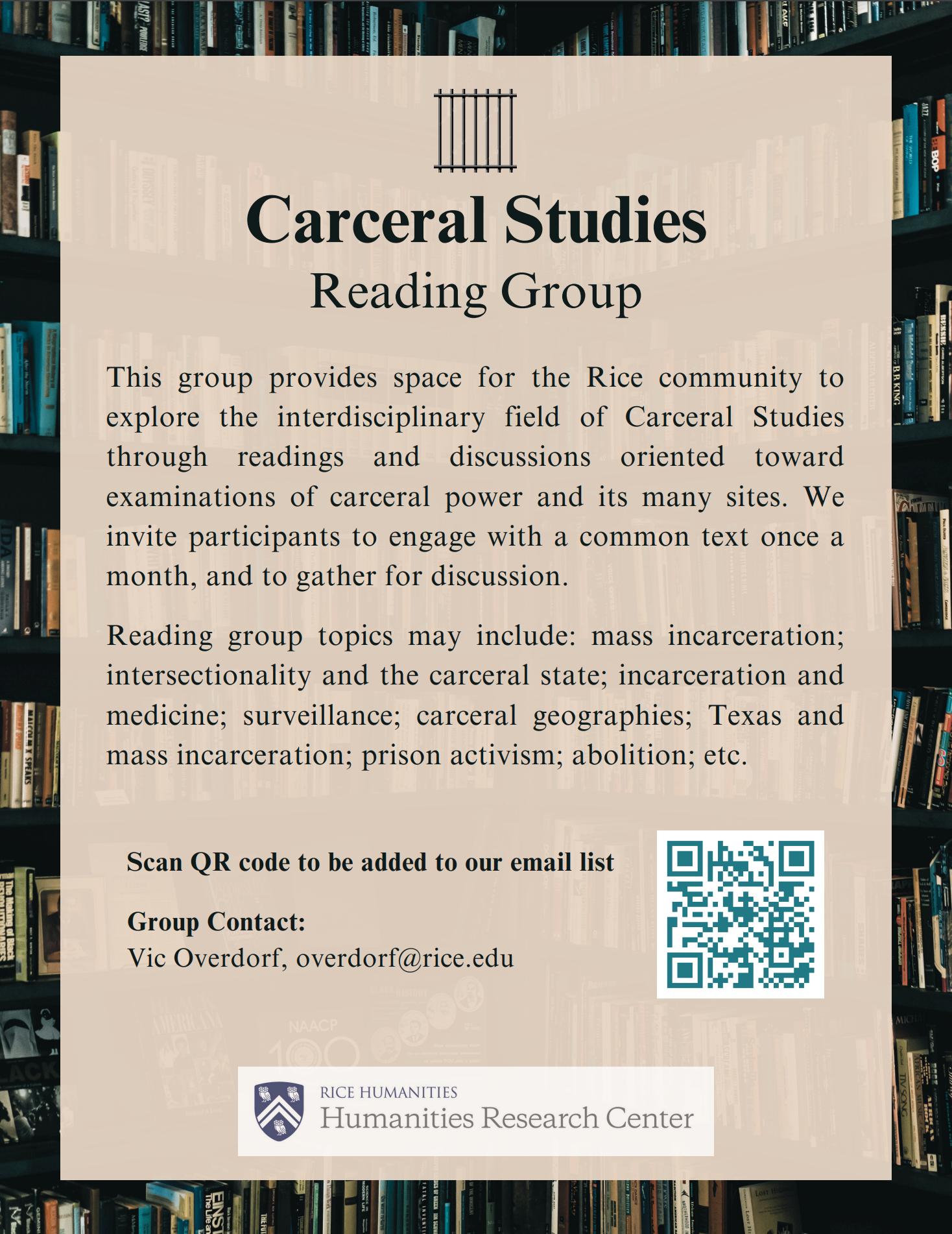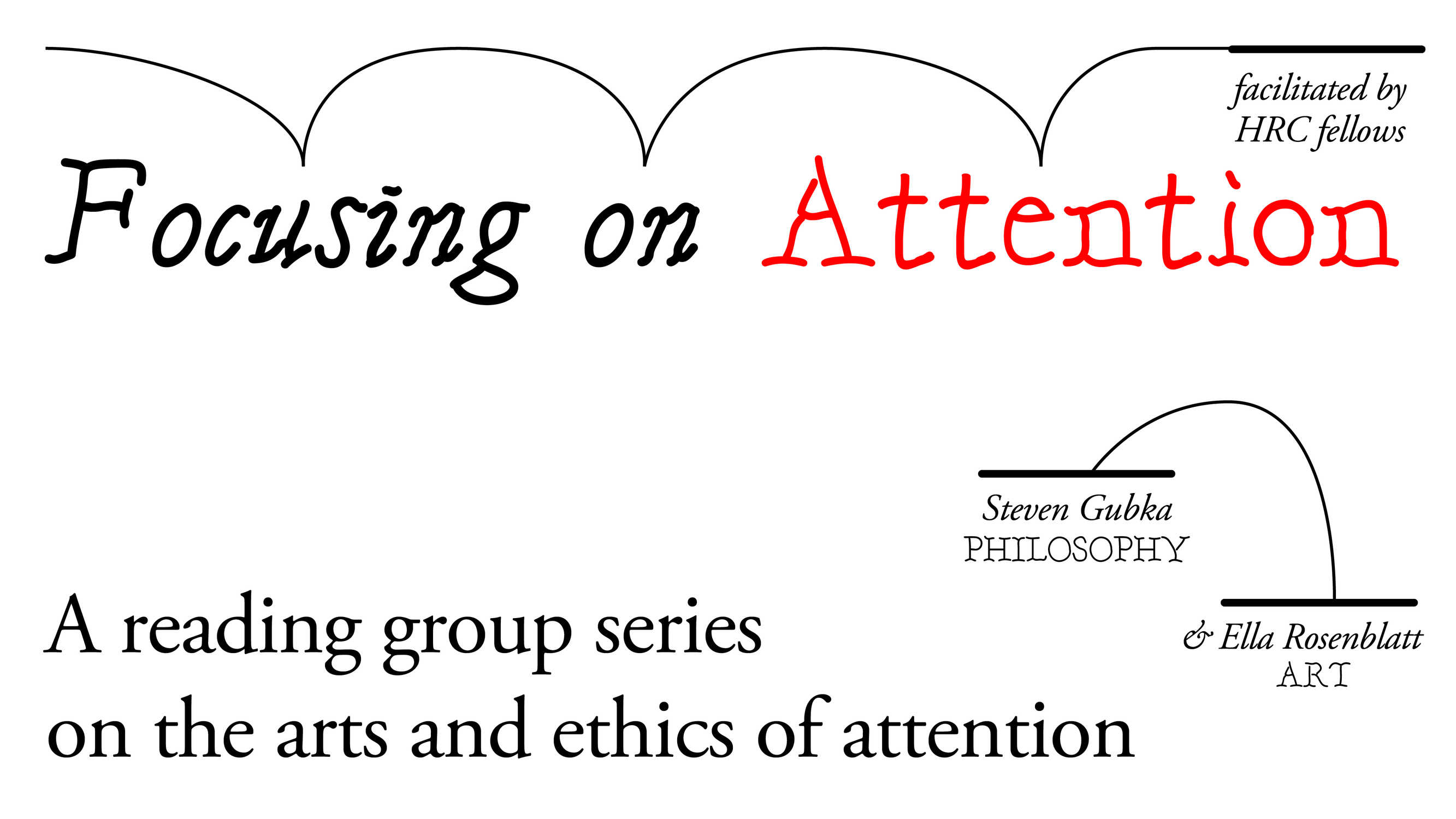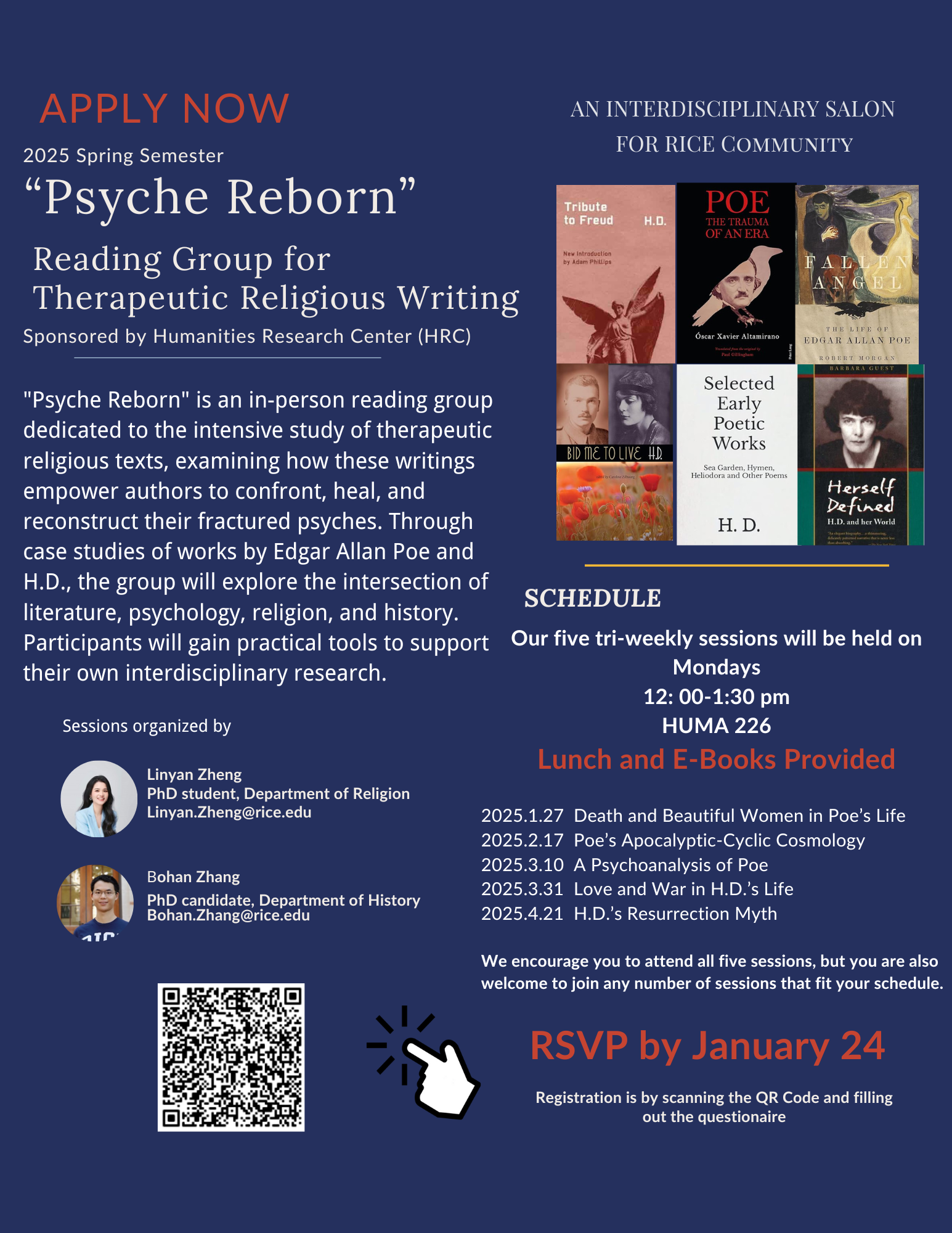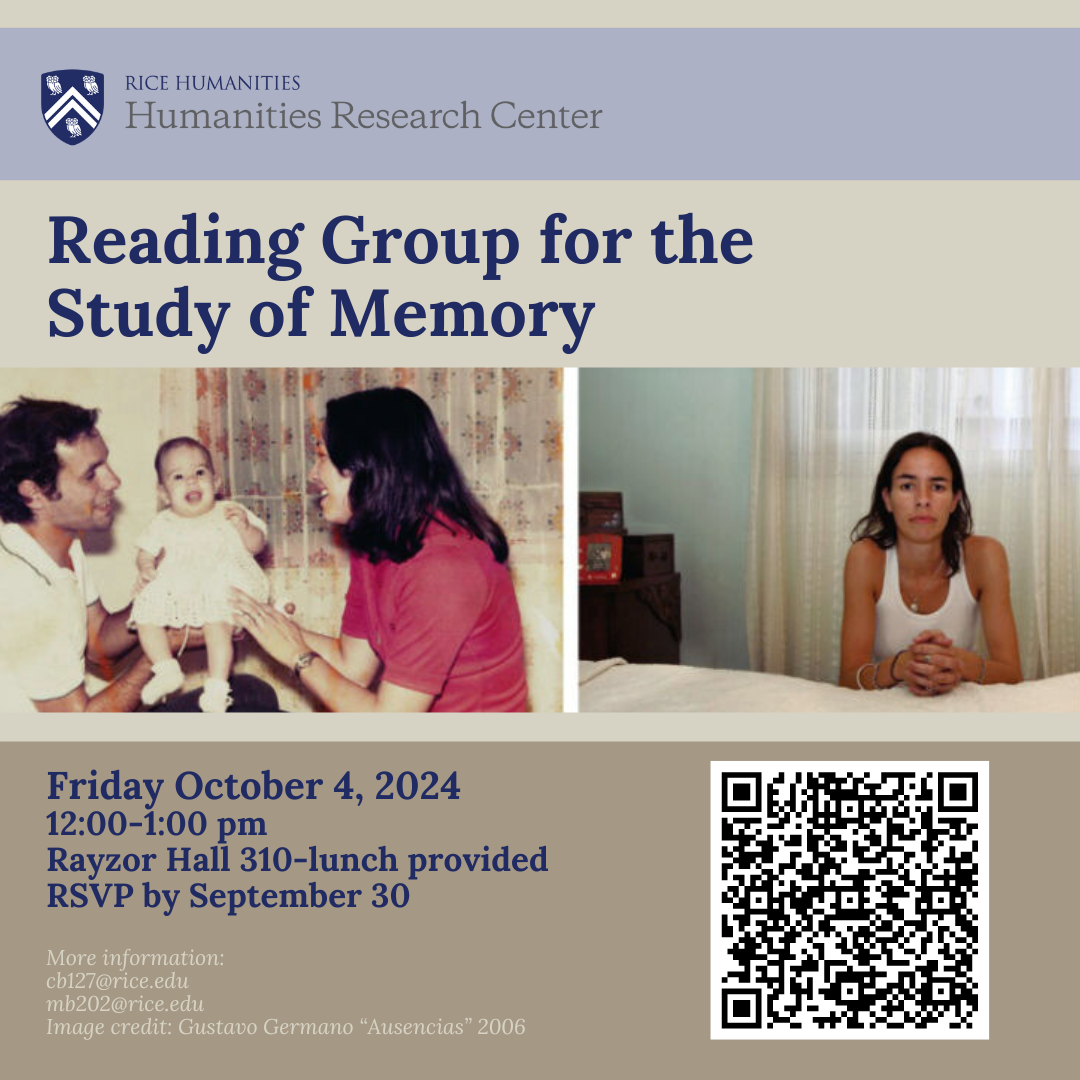The Humanities Research Center supports several reading groups and encourages Rice faculty, postdoctoral associates, and graduate students to join them.
To join a reading group, either contact the designated organizer or fill out the group's interest form.
2025-2026
Carceral Studies
Organizer: Vic Overdorf (HRC/CSWGS)
The Carceral Studies Reading Group provides space for the Rice community to explore the interdisciplinary field of Carceral Studies through readings and discussions oriented toward examinations of carceral power and its many sites. We invite participants to engage with a common text once a month, and to gather for discussion in person, with a Zoom option available. The group is open to faculty, staff, graduate students, and undergraduate students. The group’s membership is interdisciplinary, and the reading material reflects this, with each group meeting focusing on a text from a different discipline. The field of Carceral Studies has such wide, interdisciplinary appeal because the carceral—broadly defined as relating to power, punishment, and social control—is embedded in so many of the fields that make up the humanities and beyond. The Carceral Studies Reading Group is a place for individuals from these different campus spaces to discuss this common thread in our work.
Contact: To join, please fill out this interest form https://forms.gle/Jmi6zonYPSFq7sgj8. For more information, email Vic Overdorf (overdorf@rice.edu)

Technology Ethics
Organizers: Steven Gubka (HRC/Philosophy), Robert Howell (Philosophy), Rodrigo Ferreira (Philosophy)
The Technology Ethics Reading Group is about technology ethics primarily from the perspective of analytic philosophy. This is an area of growing interest, especially given recent developments in AI. Some general topics that seem especially pressing include the automation of labor, privacy and surveillance, manipulation on the internet, and artificial moral agents. Our meetings thus far have focused on generative AI, such as how to interpret its erroneous outputs, whether one can truly be considered the author of AI-generated work, and the possibility of deception when humans interact with generative AI. Ultimately, the group will focus on the interests of the participants, so we expect our readings to cover a wide range of topics and change in response to feedback from participants.
Contact: Steven Gubka (sg222@rice.edu)
Focusing on Attention
Organizers: Steven Gubka (HRC/Philosophy) and Ella Rosenblatt (HRC/ Art)
At each meeting, the Focusing on Attention Reading Group will closely read one to two examples each of a short philosophical text and engage with artistic work, addressing the following themes: 1. Attention as an Ethics Itself, 2. Attention and Meaning, 3. Attention and Labor, 4. Attention and the Environment, and lastly 5. Attention and Taste. These discussions will inevitably address contemporary technological conditions, including AI, but also conversations about artistic practice and what is valuable in life. Although the sessions will relate to one another, the meetings will be standalone opportunities to discuss and practice attention (and also to look at and discuss cool art).
Contact: Please follow this link to indicate your availability by Tuesday, January 21st https://whenisgood.net/dwqazfw; and email Professor Rosenblatt (er82@rice.edu) or Dr. Gubka (sg222@rice.edu) to be added to the email list for the group.

Psyche Reborn: Reading Group for Therapeutic Religious Writings
Organizers: Linyan Zheng (Religion) and Bohan Zhang (History)
“Psyche Reborn” is an in-person reading group dedicated to the intensive study of therapeutic religious texts, examining how these writings empower authors to confront, heal, and reconstruct their fractured psyches. Through case studies of works by Edgar Allan Poe and H.D., the group will explore the intersection of literature, psychology, religion, and history. Participants will gain practical tools to support their own interdisciplinary research.
Contact: Click here to register by January 24th. Contact Linyan Zheng (Linyan.Zheng@rice.edu) or Bohan Zhang (Bohan.Zhang@rice.edu) for more information.

Study of Memory
Organizers: Claire Branigan (MCLC) and Mary Grayson Brook (MCLC)
Memory studies is a growing interdisciplinary field that seeks to understand the ways in which societies transmit memory of traumatic and violent pasts. While the field has extensive research in Holocaust studies as well as studies of post-dictatorship Latin America, rarely do these regions converse with each other. The Study of Memory Reading Group seeks to approach memory studies through a transnational lens through a monthly reading group for advanced undergraduate students, graduate students, and faculty. Over the course of the 2024-2025 academic year, this group expects to hold four meetings per semester or eight over the course of the year. These monthly reading groups are an opportunity for the humanities community to work across disciplines in initiating memory studies at Rice University with the hope of fostering a sense of repair and redress.
Contact: Claire Branigan (cb127@rice.edu) or Mary Grayson Brook (mb202@rice.edu)

